SECO News, April 2020
Duncan’s Digest – Name the New IVR Virtual Assistant
I have exciting news to share. SECO’s new interactive voice response (IVR) phone system launched in early March. The system is available 24/7, is user-friendly and is a big leap forward in customer service technology.
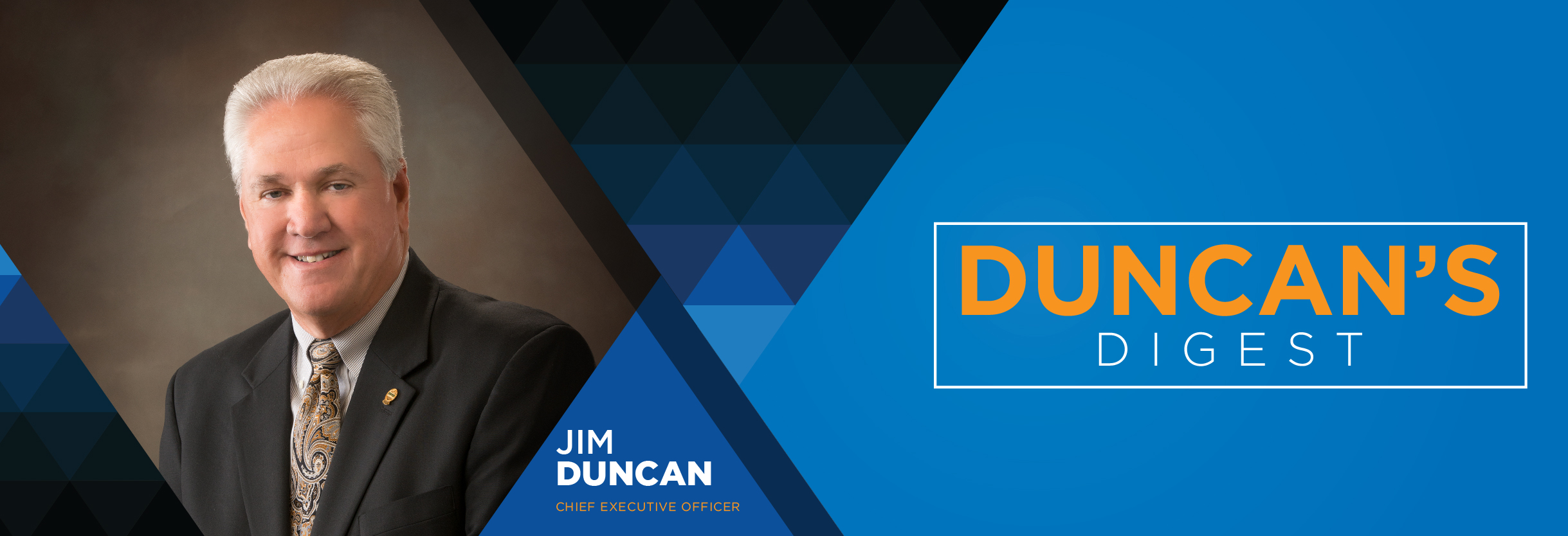
The former phone system was in desperate need of an upgrade. With recent laws banning handheld phone use while driving, the new natural language IVR is a safer alternative and is easier to navigate.
The new IVR features a virtual assistant who uses natural language technology mimicking a real conversation. Previously manual tasks can now be completed virtually with full automation. Without pressing numbers on your keypad, you can report an outage, initiate a billing inquiry or make a payment arrangement at any time without speaking to a representative. Members can also log into SmartHub at SECOEnergy.com and request a payment arrangement.
Using the new IVR, you can check the status of an existing outage, learn the estimated restoration time and crew status. The IVR’s outage component functions much the same as the online StormCenter platform. Members who aren’t so tech-savvy will receive the same information and level of service as online members.
Another benefit of the virtual assistant is its call back feature. If you have tried to call us on Monday morning or the Tuesday after a holiday, you may have noticed longer hold times. With the virtual assistant, you can request a call back during normal business hours Monday through Friday from 8 a.m. to 7 p.m. This call back saves your place in the queue, and you don’t have to wait on hold. A future phase of the IVR will include virtual assistance with high usage inquiries, meter re-reads, new service connects, disconnects and transfers.
The virtual assistant is our newest SECO representative who can assist thousands of members simultaneously. This will come in handy during hurricane season when perhaps 100,000+ are without power at once like during Hurricane Irma.
We like our virtual assistant a lot and think she needs a name. I’m asking for your help and want to give you a chance to listen to the great features of the new IVR. Visit our Name the IVR page or click on the homepage banner. Play the four sample recordings of our new virtual assistant. Verify your account information and cast your vote for one of the name options:
1. Electra
2. Ernestine
3. Katie Kilowatt
4. SECO Elle
5. Trudy Transformer
Your entry places you in a drawing to win one of five great prizes: a $250 SECO bill credit, a Ring doorbell, a Nest Learning Thermostat, an Amazon Alexa and an Amazon fire tablet. Enter before May 15. We’ll announce our new virtual assistant’s name and contest winners in June SECO News.
This new system is indeed state-of-the-art technology and it came with a corresponding price tag. The good news is that it will pay for itself over the years as more members experience it firsthand and are willing to self-serve using the IVR. No employees will be displaced by the new technology. I encourage members to use it to their advantage and ours as a not-for-profit cooperative committed to affordable, reliable electric service for years to come.
Sincerely,
Jim Duncan
Chief Executive Officer

Right Tree, Right Place
What is green, creates oxygen and can help you reduce your annual energy costs? Trees, of course! Choosing the right tree to plant in the right place can help you reduce energy costs and reduce tree-related power outages.
Plant trees to the south, southwest or west side of structures to reduce cooling costs in the summer. Native Florida shade trees that grow well in Central Florida according to the University of Florida’s Institute of Food and Agricultural Sciences (UF/IFAS) are Florida elms and hophornbeam trees.
Block fall and winter winds by planting evergreens and shrubs on the north and west side of structures. UF/IFAS lists hollies, southern magnolias and sweetbay magnolias as native Floridian evergreen shade trees. For shrubs, choose azaleas, bottlebrush, Indian hawthorn, juniper, loropetalum or tea olive. Plant shrubs close to your home’s foundation to insulate against cold weather.
Trees growing too close to power lines can cause sparks, fires, power outages and shock hazards. Maintain a clear zone of 15 feet on each side of an overhead line. Before planting a tree, consider its mature height and its proximity to overhead power lines. Trees that grow to a mature height of 40 feet or higher should be planted at least 50 feet away from power lines. Small ornamental trees or shrubs that will not exceed 25 feet in height are best to be planted closer to lines, but outside the clear zone.

Advice from The Old Farmer’s Almanac
THE OLD FARMER’S ALMANAC lists April 1st and 2nd as well as the 27th through the 29th to turn April showers into May flowers by planting aboveground crops. For belowground crops, plant on April 9th and 10th or the 18th or 19th. Are you planning on spring cleaning? The best day to wash windows is the 20th through the 22nd. Clean your floors on either the 18th or 19th and paint on the 7th or 8th.
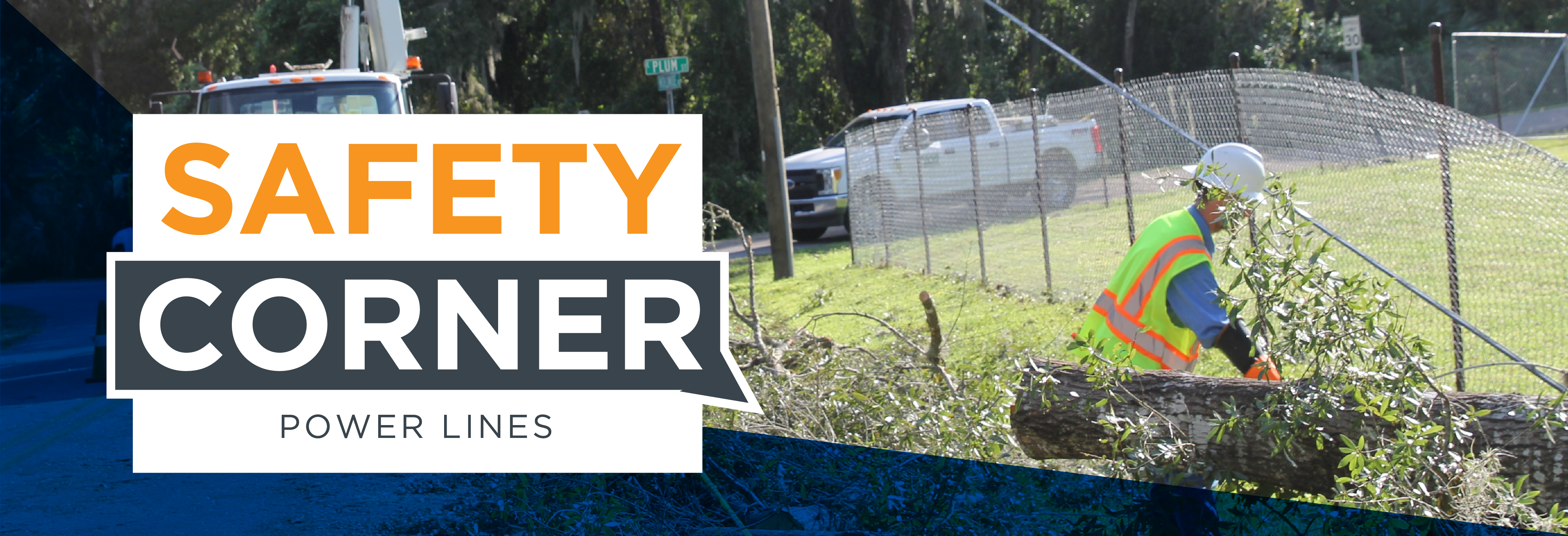
Safety Corner – Downed Line Dangers
Overhead power lines are a necessary component of SECO Energy’s electric system. Never touch an overhead line – even if the line is broken and on the ground after a storm. Always assume an overhead line is energized. Touching it could cause severe injury and even death.
Never lean a ladder against a power line or trim trees growing too close to lines. Warn children not to play on or near electric equipment. Do not allow children to fly kites or toy planes, climb trees or release balloons near power lines.
Use these tips to help keep you and your family safe from the risk of contacting an energized power line.
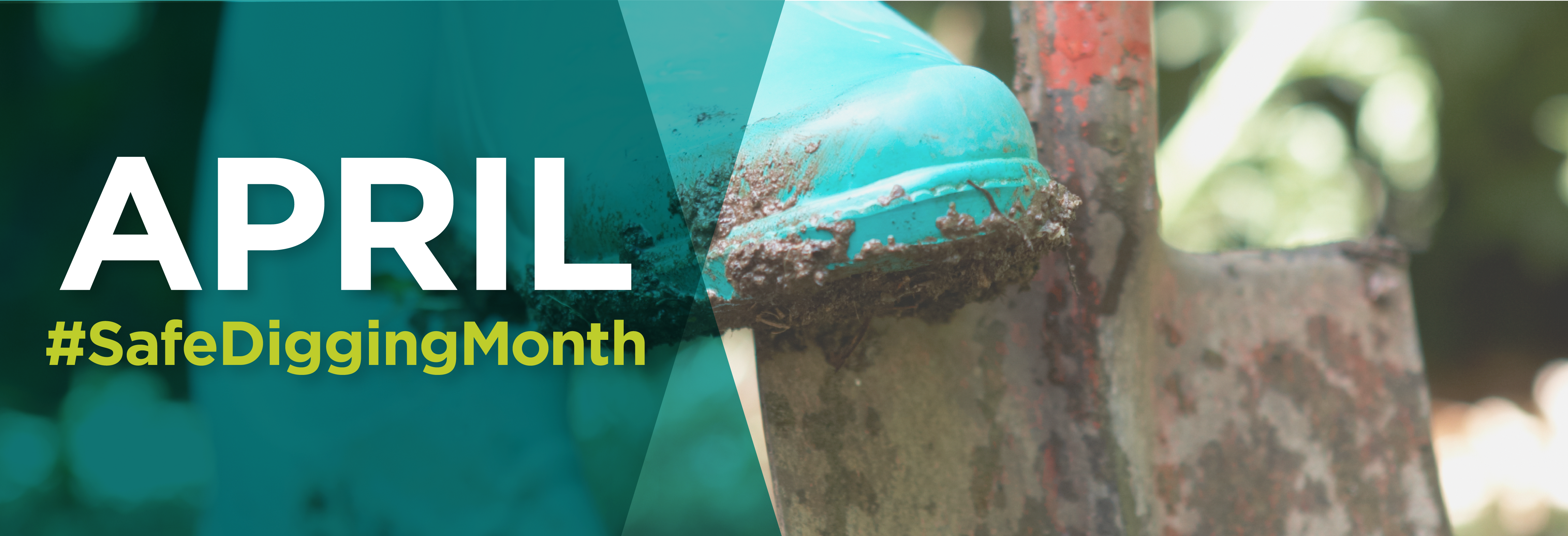
April – #SafeDiggingMonth
Spring’s warmer weather adds to-do items to your list. Before picking up a shovel to install a new fence, plant a garden or add landscaping or trees, contact 811 to locate the underground utilities on your property.
Florida law requires you to call 811 or go online before digging. The 811 service is free. April is #SafeDiggingMonth – remember to call 811 or visit Sunshine811.com before you dig!
Read the full April 2020 SECO News online.

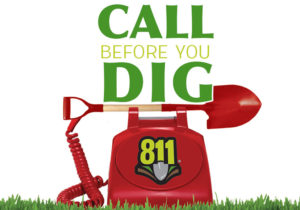


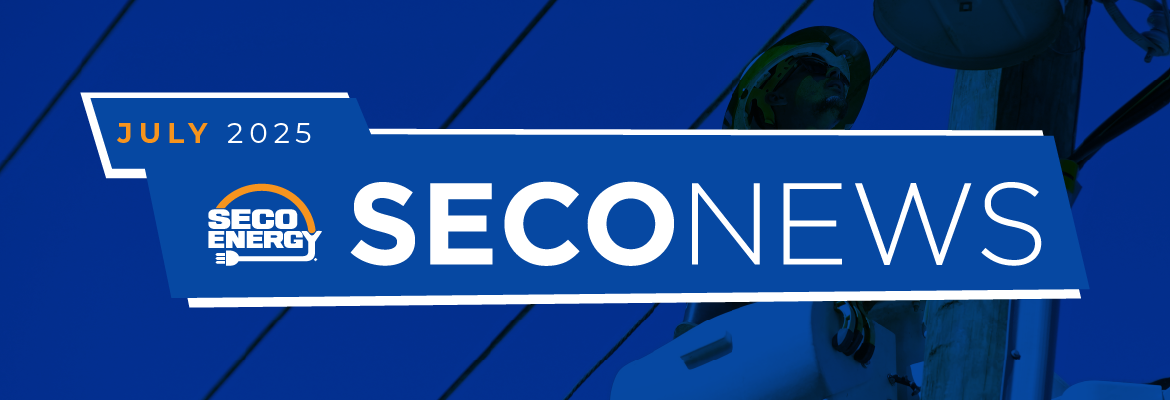
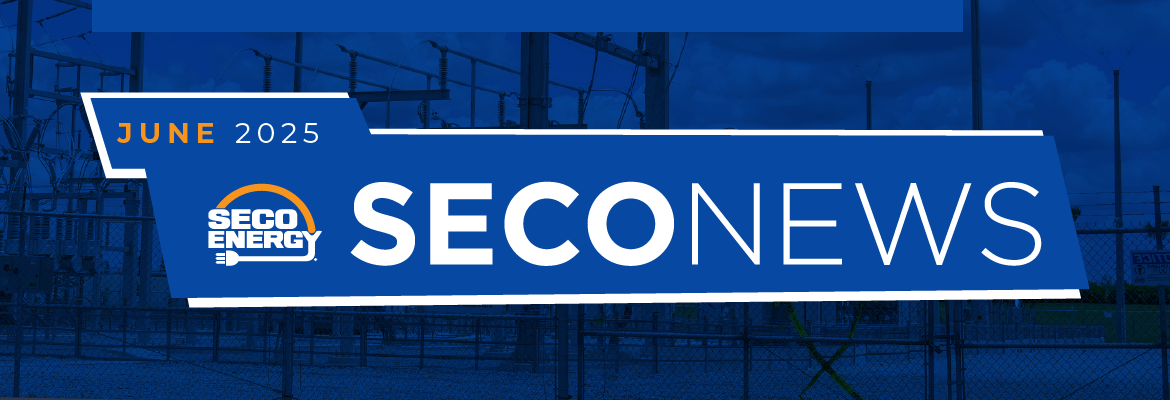
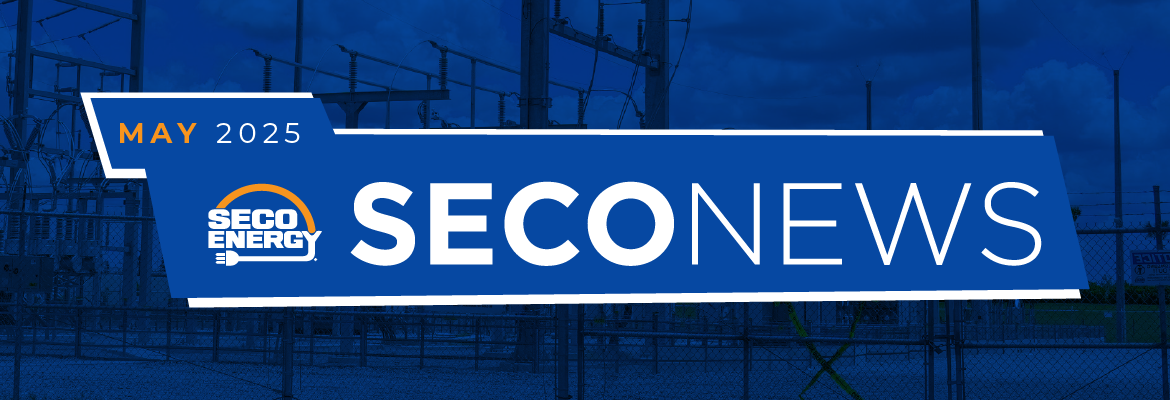
Robert L Dreischal
contest winners?????
Amanda Richardson
Here is the list of winners from our 2023 Annual Meeting: https://secoenergy.com/annual-meeting-prize-winners/. Thank you!